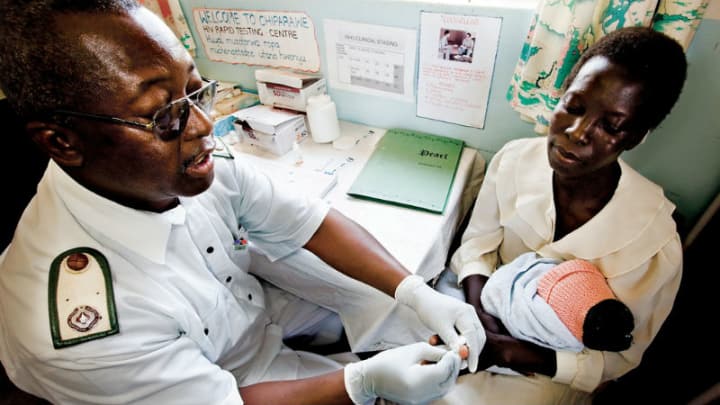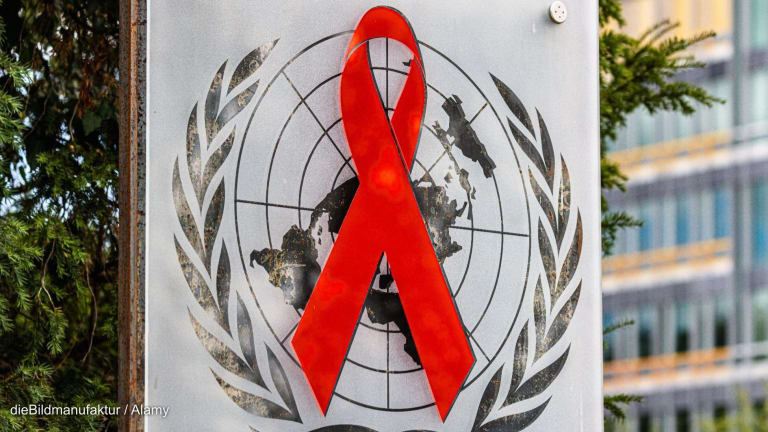
Today marks World AIDS Day — an occasion to remember the 35 million people who have died of AIDS since the epidemic began, to show support for the 36.7 million people who are living with HIV today, and to demonstrate commitment in our international development policy to continuing to fight the epidemic.
This World AIDS day, there is great cause for hope. Scientific discoveries, political leadership, and civil society advocacy have got us to a point where we can prevent and treat HIV. With access to the right medicines, people living with HIV can live long, healthy, and happy lives.
Despite these advances, 1.8 million people acquired HIV and 1 million people died of AIDS related causes in 2016. Increasingly, new infections are concentrated among the most marginalized groups. UNAIDS estimates that people who use drugs, sex workers, men who have sex with men, and transgender people account for around half of all new infections. HIV is not just an issue in the poorest countries with the least resources. By 2020, 70 percent of people living with HIV will live in middle-income countries. Despite economic progress within these countries, investment in health — and particularly the health of politically unpopular groups — remains low.
To me, the disproportionate impact of HIV on marginalized groups, especially in middle-income countries, is further evidence of the systemic inequality that underpins our societies globally. Access to health services, information, education, and economic opportunity is simply not attainable for the many. Despite the global community’s commitment to the Sustainable Development Goals, we are still leaving people behind. In the global HIV response, stigma, discrimination, and criminalization are key issues that must be tackled before we can end the epidemic.
Labour is committed in its international development policy to challenging inequality in all its forms. Last month, in a speech at the Overseas Development Institute, Shadow Secretary of State Kate Osamor set out what a Labour government’s strategy on international development would look like. She made a commitment to shift the U.K. Department for International Development’s mandate from addressing poverty to addressing poverty and inequality and to help countries build and invest in robust health systems that deliver for the many. Labour has now convened a taskforce of experts to help us further develop our program for government in international development. We will publish a paper early next year.
Applied to the HIV response, Labour’s approach means we must prioritize equality of access to HIV prevention, treatment, and care, and continue to invest. In our 2017 Manifesto, Labour committed to investing in public health driven research and development to find effective and affordable treatments for HIV and AIDS.
I urge the current government to do the same. UNAIDS predicts that all stakeholders need to increase funding for the global HIV response by approximately one-third to reach the Sustainable Development Goal target on ending AIDS by 2030. But a new report from STOPAIDS has shown that DFID’s funding for the HIV response has dropped by 22 percent since 2012. The U.K. must increase its contributions to multilateral organizations working on the HIV response, including the Global Fund, UNAIDS, and UNITAID, if we are to meet the SDG target on AIDS.
Beyond the financing, the U.K. also has a critical role to play in using its political leadership and global influence to promote and protect the rights of the groups at the greatest risk of being left behind. I was concerned to hear that the U.K. — the second largest government donor within the response — failed to send senior representatives to the past two International AIDS Conferences. The U.K. needs to show up to international HIV conferences and ensure the HIV response remains driven by evidence-based interventions and a respect for the human rights of all people.
So this World AIDS Day, let’s remember that despite the great progress we’ve made within the response, there is still work to be done. The job won’t be done until even the most marginalized groups have access to HIV services. Until then, we must continue to invest in the HIV response and be a vocal global leader for human rights and evidence-based interventions.




